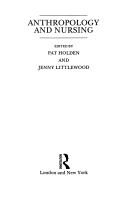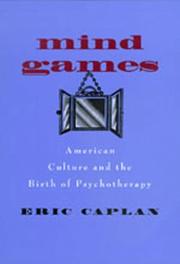| Listing 1 - 7 of 7 |
Sort by
|

ISBN: 9062311504 Year: 1987 Publisher: Pijnacker
Abstract | Keywords | Export | Availability | Bookmark
 Loading...
Loading...Choose an application
- Reference Manager
- EndNote
- RefWorks (Direct export to RefWorks)
ANTHROPOLOGY, CULTURAL. --- Anthropology, Cultural. --- Cultural Anthropology --- Ethnography --- Ethnographies --- Qualitative Research --- Theses --- Anthropology --- cultural --- cultural. --- Material Culture --- Culture, Material --- Material Cultures --- Anthropology, Cultural
Book
ISBN: 9781628924329 Year: 2015 Publisher: New York : Bloomsbury Academic,
Abstract | Keywords | Export | Availability | Bookmark
 Loading...
Loading...Choose an application
- Reference Manager
- EndNote
- RefWorks (Direct export to RefWorks)
"Object Lessons is a series of short, beautifully designed books about the hidden lives of ordinary things.Have you ever thought seriously about your refrigerator? The box humming in the background actually displays who you are and the society in which you live. This book examines the past, present, and future of the electric household refrigerator with an eye towards preventing its users from ever taking it for granted again. No mere container for cold Cokes and celery stalks, the refrigerator is actually more like a mirror-and what it reflects is chilling indeed.Object Lessons is published in partnership with an essay series in the The Atlantic"--
Book
ISBN: 9044110403 Year: 2000
Abstract | Keywords | Export | Availability | Bookmark
 Loading...
Loading...Choose an application
- Reference Manager
- EndNote
- RefWorks (Direct export to RefWorks)
162
Depressie --- Geschiedenis der geneeskunde --- Depression --- Psychiatrie --- History of Medicine. --- Anthropology, Cultural. --- 616.895.4 --- Academic collection --- #GBIB:CBMER --- Cultural Anthropology --- Ethnography --- Ethnographies --- Qualitative Research --- Medicine, History --- History Medicines --- Medicine Histories --- Medicines, History --- Medicine --- Dépression --- Histoire de la médecine --- therapy. --- Melancholie. Depressieve psychose. Hypochondrie --- history --- Material Culture --- Culture, Material --- Material Cultures --- History of Medicine --- Anthropology, Cultural --- therapy --- Kind --- ouder --- Jeugd --- Media --- Ontwikkelingsstoornis --- Fysiotherapie
Book
ISBN: 2905614145 9782905614148 Year: 1987 Publisher: S.l. Millon
Abstract | Keywords | Export | Availability | Bookmark
 Loading...
Loading...Choose an application
- Reference Manager
- EndNote
- RefWorks (Direct export to RefWorks)
Human body --- Body marking --- Rites and ceremonies --- Social aspects --- #SBIB:39A10 --- #SBIB:39A2 --- Anthropology, Cultural. --- Ceremonial Behavior. --- Psychoanalytic Interpretation. --- Body-marking --- Body modification, Non-therapeutic (Body marking) --- Marking, Body --- Non-therapeutic body modification (Body marking) --- Beauty, Personal --- Manners and customs --- Ceremonies --- Cult --- Cultus --- Ecclesiastical rites and ceremonies --- Religious ceremonies --- Religious rites --- Rites of passage --- Traditions --- Ritualism --- Mysteries, Religious --- Ritual --- Interpretation, Psychoanalytic --- Psychoanalytical Interpretation --- Interpretation, Psychoanalytical --- Interpretations, Psychoanalytic --- Interpretations, Psychoanalytical --- Psychoanalytic Interpretations --- Psychoanalytical Interpretations --- Rituals --- Behavior, Ceremonial --- Behaviors, Ceremonial --- Ceremonial Behaviors --- Appetitive Behavior --- Cultural Anthropology --- Ethnography --- Ethnographies --- Qualitative Research --- Antropologie: religie, riten, magie, hekserij --- Antropologie: methoden en technieken --- Material Culture --- Culture, Material --- Material Cultures --- Anthropology, Cultural --- Ceremonial Behavior --- Psychoanalytic Interpretation --- Human body - Social aspects

ISBN: 0415048818 0415006120 9780415006125 9780415048811 Year: 1991 Publisher: New York : Routledge,
Abstract | Keywords | Export | Availability | Bookmark
 Loading...
Loading...Choose an application
- Reference Manager
- EndNote
- RefWorks (Direct export to RefWorks)
#GBIB:CBMER --- #SBIB:39A9 --- Medische antropologie / gezondheid / handicaps --- Medical anthropology. --- Social medicine. --- Anthropologie médicale. --- Anthropologie. --- Anthropology, Cultural. --- Cross-Cultural Comparison. --- Ethnology. --- Krankenpflege. --- Médecine sociale. --- Nursing. --- Relations infirmière-patient. --- Soins infirmiers --- Soins infirmiers. --- Histoire. --- Anthropologie culturelle --- Nursing --- Relations infirmière-patient --- Aspect social
Book
ISBN: 1563686538 9781563686535 9781563686528 156368652X Year: 2015 Publisher: Washington, DC Gallaudet University Press
Abstract | Keywords | Export | Availability | Bookmark
 Loading...
Loading...Choose an application
- Reference Manager
- EndNote
- RefWorks (Direct export to RefWorks)
"It's a Small World explores the fascinating and, at times, controversial concept of DEAF-SAME ("I am deaf, you are deaf, and so we are the same") and its influence on deaf spaces locally and globally. The editors and contributors focus on national and international encounters (e.g., conferences, sporting events, arts festivals, camps) and the role of political/economic power structures on deaf lives and the creation of deaf worlds. They also consider important questions about how deaf people negotiate DEAF-SAME and deaf difference, with particular attention to relations between deaf people in the global South (countries in Africa, Asia, and Latin America, with access to fewer resources than other countries) and the global North (countries in Europe, along with Canada, the US, Australia, and several other nations with access to and often control of resources). Editors Michele Friedner and Annelies Kusters and their contributors represent a variety of academic and professional fields, from anthropology and linguistics to cultural and religious studies. Each chapter in this original volume highlights a new perspective on the multiple intersections that occur between nationalities, cultures, languages, religions, races, genders, and identities. The text is organized into five sections--Gatherings, Language, Projects, Networks, and Visions. Taken all together, the 23 chapters in this book provide an understanding of how sameness and difference are powerful yet contested categories in deaf worlds"-- "Explores the controversial concept of Deaf-Same ("I am deaf, you are deaf, so we are the same")and its influence of deaf spaces locally and globally"--
SOCIAL SCIENCE / People with Disabilities. --- SOCIAL SCIENCE / Ethnic Studies / General. --- SOCIAL SCIENCE / Anthropology / Cultural. --- Deaf --- Deaf culture --- Deaf-mutes --- Deaf people --- Deafness --- Hearing impaired --- Deafblind people --- Deaf subculture --- Subculture --- Patients --- #KVHA:Taalkunde; Gebarentaal --- #KVHA:Cultuurgeschiedenis; Gebarentaal --- #KVHA:Rechten; Dovengemeenschap --- #SBIB:39A9 --- Medische antropologie / gezondheid / handicaps --- Social science --- Deaf. --- Deaf culture. --- Anthropology --- Cultural. --- Ethnic Studies --- General. --- People with Disabilities.

ISBN: 0520927028 0585068739 0520211693 9780520927025 9780585068732 9780520211698 Year: 1998 Volume: 9 Publisher: Berkeley, Calif. : University of California Press,
Abstract | Keywords | Export | Availability | Bookmark
 Loading...
Loading...Choose an application
- Reference Manager
- EndNote
- RefWorks (Direct export to RefWorks)
Eric Caplan's fascinating exploration of Victorian culture in the United States shatters the myth of Freud's seminal role in the creation of American psychotherapy. Resurrecting the long-buried "prehistory" of American mental therapeutics, Mind Games tells the remarkable story of how a widely assorted group of actors-none of them hailing from Vienna or from any other European city-compelled a reluctant medical profession to accept a new role for the mind in medicine. By the time Freud first set foot on American soil in 1909, as Caplan demonstrates, psychotherapy was already integrally woven into the fabric of American culture and medicine.What came to be known as psychotherapy emerged in the face of considerable opposition, much-indeed most-of which was generated by the medical profession itself. Caplan examines the contentious interplay within the American medical community, as well as between American physicians and their lay rivals, who included faith-healers, mind-curists, Christian Scientists, and Protestant ministers. These early practitioners of alternative medicine ultimately laid the groundwork for a distinctive and much heralded American type of psychotherapy. Its grudging acceptance by both medical elites and rank and file physicians signified their understanding that reliance on physical therapies to treat nervous and mental symptoms compromised their capacity to treat-and compete-effectively in a rapidly expanding mental-medical marketplace. Mind Games shows how psychotherapy came to occupy its central position in mainstream American culture.
Mental healing --- Psychotherapy --- Mental Healing --- Psychology, Social --- Culture --- History, 19th Century --- Behavioral Disciplines and Activities --- Spiritual Therapies --- Psychology --- History, Modern 1601 --- -Anthropology, Cultural --- Sociology --- Behavior and Behavior Mechanisms --- Mind-Body Therapies --- Behavioral Sciences --- Anthropology --- Psychiatry and Psychology --- Social Sciences --- Complementary Therapies --- History --- Anthropology, Education, Sociology and Social Phenomena --- Therapeutics --- Humanities --- Analytical, Diagnostic and Therapeutic Techniques and Equipment --- Psychiatry - General --- Psychiatry --- Health & Biological Sciences --- Social aspects --- history --- United States --- Social life and customs --- Therapy --- Treatment --- Therapeutic --- Therapies --- Treatments --- Disease --- Aspects, Historical --- Historical Aspects --- Aspect, Historical --- Historical Aspect --- Histories --- Alternative Therapies --- Therapy, Alternative --- Therapy, Complementary --- Alternative Medicine --- Complementary Medicine --- Medicine, Alternative --- Medicine, Complementary --- Therapies, Alternative --- Therapies, Complementary --- Science, Social --- Sciences, Social --- Social Science --- Proxemics --- Behavioral Science --- Proxemic --- Science, Behavioral --- Sciences, Behavioral --- Mind-Body Medicine --- Mind Body Medicine --- Mind Body Therapies --- Mind-Body Therapy --- Therapies, Mind-Body --- Therapy, Mind-Body --- General Social Development and Population --- Cultural Anthropology --- Ethnography --- Ethnographies --- History of Medicine, Modern --- Medicine, Modern --- Modern History (Medicine) --- Modern Medicine --- History, Modern --- Modern History --- 1601- History, Modern --- History, Modern (Medicine) --- Modern 1601- History --- Factors, Psychological --- Psychological Factors --- Psychological Side Effects --- Psychologists --- Psychosocial Factors --- Side Effects, Psychological --- Factor, Psychological --- Factor, Psychosocial --- Factors, Psychosocial --- Psychological Factor --- Psychological Side Effect --- Psychologist --- Psychosocial Factor --- Side Effect, Psychological --- Exorcism --- Therapies, Spiritual --- Spiritual Healing --- Exorcisms --- Healing, Spiritual --- Healings, Spiritual --- Spiritual Healings --- Psychagogy --- Therapy (Psychotherapy) --- Clinical Psychotherapists --- Logotherapy --- Psychotherapists --- Clinical Psychotherapist --- Logotherapies --- Psychotherapies --- Psychotherapist --- Psychotherapist, Clinical --- Psychotherapists, Clinical --- 19th Cent. History (Medicine) --- 19th Cent. History of Medicine --- 19th Cent. Medicine --- Historical Events, 19th Century --- History of Medicine, 19th Cent. --- History, Nineteenth Century --- Medical History, 19th Cent. --- Medicine, 19th Cent. --- 19th Century History --- 19th Cent. Histories (Medicine) --- 19th Century Histories --- Cent. Histories, 19th (Medicine) --- Cent. History, 19th (Medicine) --- Century Histories, 19th --- Century Histories, Nineteenth --- Century History, 19th --- Century History, Nineteenth --- Histories, 19th Cent. (Medicine) --- Histories, 19th Century --- Histories, Nineteenth Century --- History, 19th Cent. (Medicine) --- Nineteenth Century Histories --- Nineteenth Century History --- Beliefs --- Cultural Background --- Customs --- Background, Cultural --- Backgrounds, Cultural --- Belief --- Cultural Backgrounds --- Cultures --- Custom --- Social Psychology --- Psychologies, Social --- Social Psychologies --- Healing, Mental --- Absent treatment --- Health thoughts --- Mind-cure --- Psychic healing --- therapy --- Qualitative Research --- Occultism --- Parapsychology --- Spirituality --- Mental illness --- Clinical sociology --- Mental health counseling --- Neurolinguistic Programming --- Sensory Art Therapies --- Religion --- Alternative medicine --- Healing --- Mind and body --- Therapeutics, Suggestive --- Psychology, Perceptual --- Perceptual Psychology --- Material Culture --- Culture, Material --- Material Cultures --- Schema Therapy --- Schema Therapies --- Therapies, Schema --- Therapy, Schema --- Cultural Relativism --- Cultural Relativisms --- Relativism, Cultural --- Relativisms, Cultural --- Behavior And Behavior Mechanism
| Listing 1 - 7 of 7 |
Sort by
|

 Search
Search Feedback
Feedback About
About Help
Help News
News